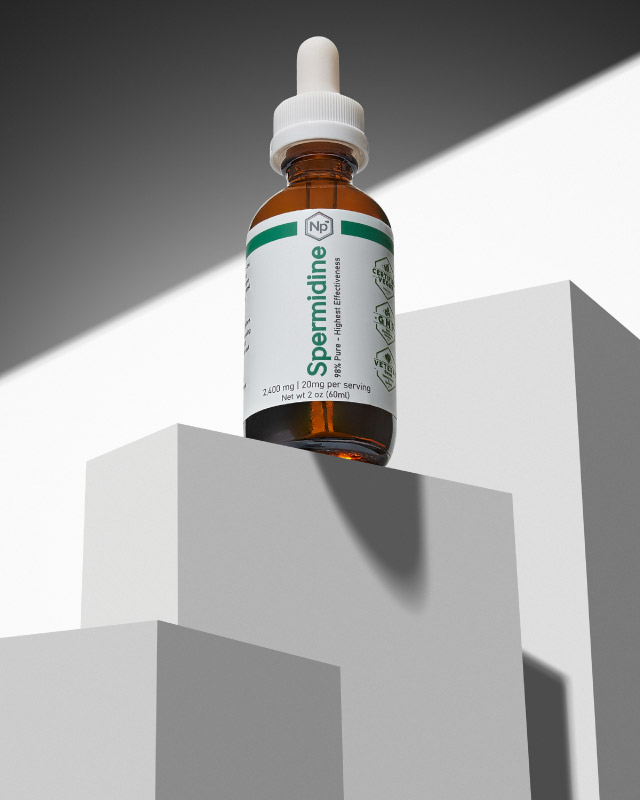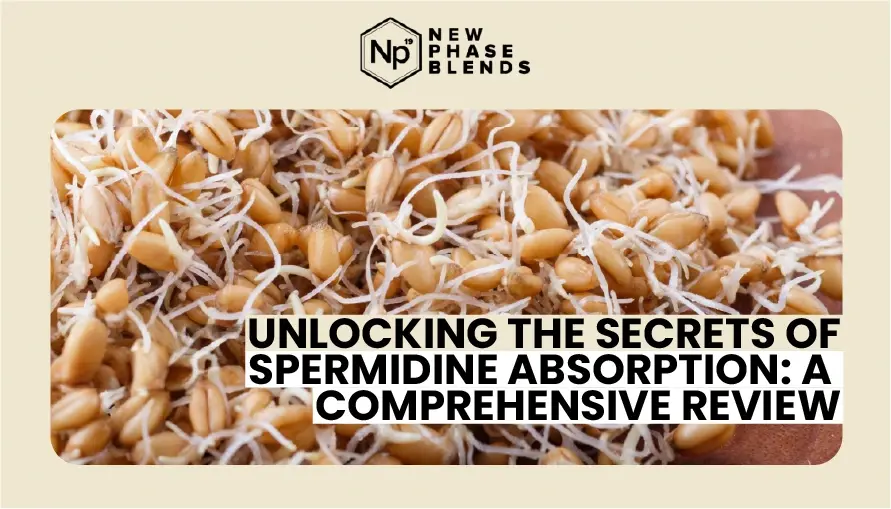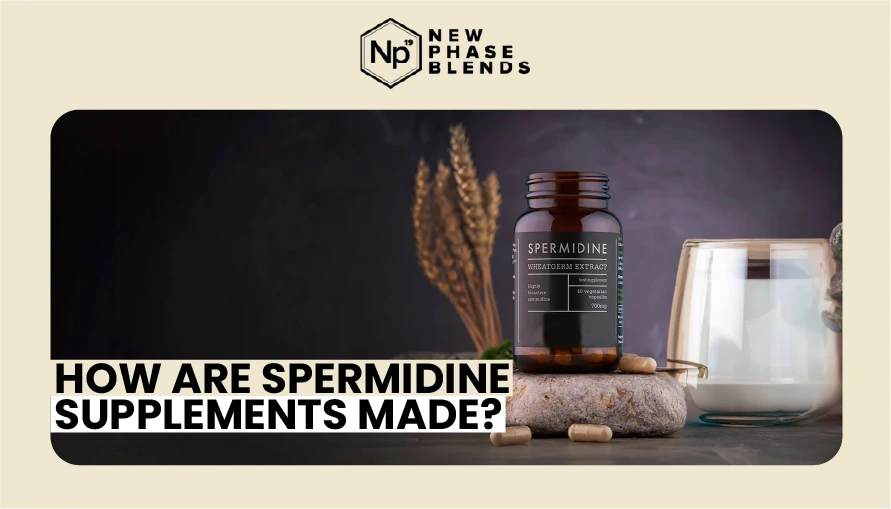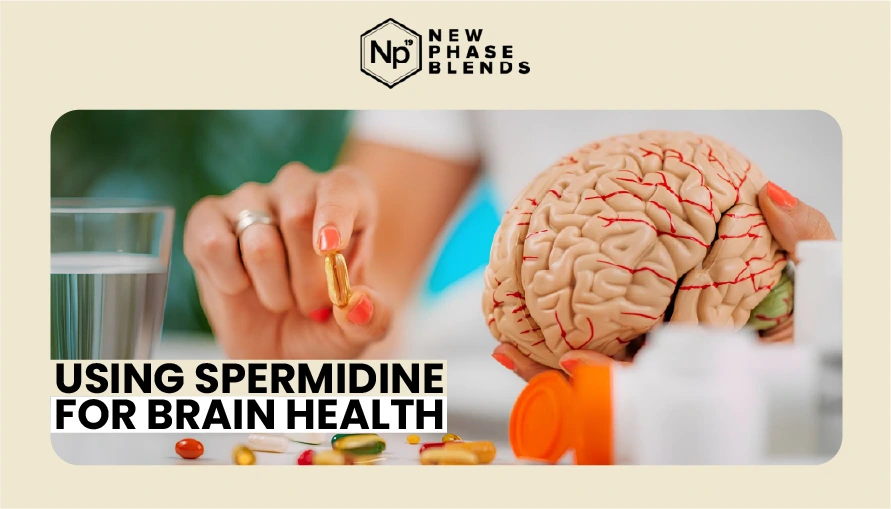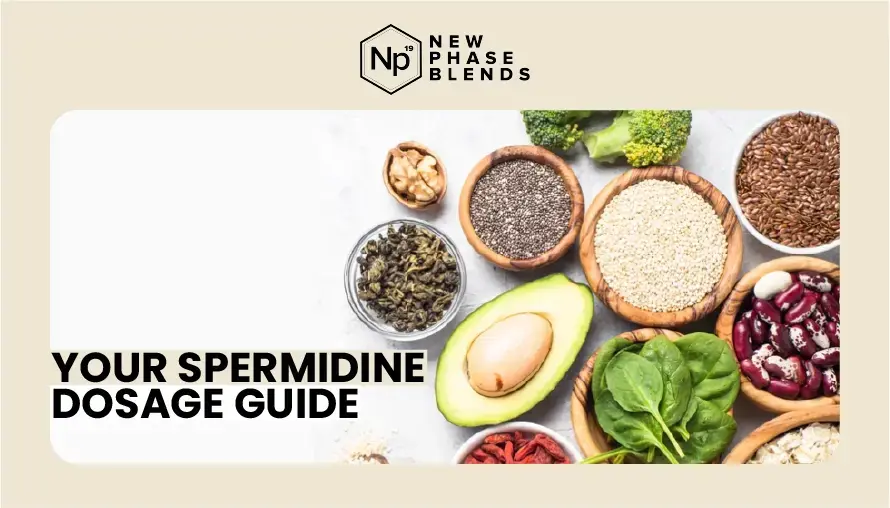Are you looking to boost your cellular health and support your body’s natural anti-aging processes? Spermidine, a naturally occurring compound found in all living cells, might be the key you’ve been searching for. As we age, our body’s spermidine levels naturally decline, which may contribute to various age-related concerns. Fortunately, there are several natural approaches to increase your spermidine levels and potentially support longevity and overall health.
Ways to Naturally Increase Spermidine Levels
While dietary sources are important, research has identified additional strategies to boost your body’s spermidine levels:
1. Intermittent Fasting
Recent scientific discoveries show that fasting promotes the synthesis of spermidine in the body (Hofer et al., 2024). Studies have found increased spermidine levels upon distinct regimens of fasting or caloric restriction in yeast, flies, mice, and human volunteers (Pietrocola et al., 2017).
It is believed that the human body starts autophagy (the cellular cleaning process linked to spermidine) after 13 to 16 hours of fasting (Madeo et al., 2018). Therefore, appropriate intermittent fasting, where the body activates cellular cleansing for one or more hours several times a week, can support natural spermidine production (Hofer et al., 2022).
2. Regular Exercise
Physical activity puts our cells under stress, and they respond with autophagy, which is linked to spermidine production (Wang et al., 2014). Engaging in aerobic exercise, cardio, or high-intensity interval training has been shown to promote autophagy in the liver, muscles, and heart over time (Mansueto et al., 2017).
Regular exercise increases the amount of oxygen and nutrients your cells receive by improving blood flow to vital organs, supporting the autophagy process and potentially increasing spermidine levels (Wang et al., 2020).
3. Quality Sleep
During sleep, the body recovers from the day’s activities, and both the glymphatic system and autophagy are very active (Boland et al., 2019). Maintaining a healthy sleep schedule may help maximize the effects of autophagy and support natural spermidine regulation (Liang et al., 2021).
4. Optimize Gut Health
Some of the spermidine found in our body is produced by certain bacteria in the digestive tract (Gómez-Gallego et al., 2014). Supporting a healthy gut microbiome through a balanced diet rich in fiber, fermented foods, and probiotic sources may help maintain optimal spermidine levels (Hirano et al., 2021).
5. Reduce Processed Food Intake
The modern diet, often dominated by processed foods, may lack adequate levels of spermidine (Soda et al., 2021). Highly processed foods such as chips and candy have low spermidine content (Muñoz-Esparza et al., 2019). Focusing on whole, unprocessed foods can help ensure sufficient spermidine intake (Hirano et al., 2021).
More on Spermidine Benefits
Spermidine is a polyamine compound present in all living organisms that plays a crucial role in maintaining cellular homeostasis (Madeo et al., 2018). First identified in 1678 in human sperm (hence its name), spermidine is found in all human cells and serves as a precursor to spermine, which helps ensure the stability and integrity of body fluids (Pegg, 2014). Unfortunately, this “fountain of youth” naturally declines with age, making it increasingly important to replenish through diet or supplements (Soda et al., 2021).
Recent research has identified spermidine as a natural polyamine that stimulates cytoprotective autophagy, the body’s cellular cleaning and recycling process (Madeo et al., 2018). Studies have shown that external supplementation of spermidine offers benefits that extends lifespan and health span across various species, including yeast, nematodes, flies, and mice (Eisenberg et al., 2016; Schwarz et al., 2018).
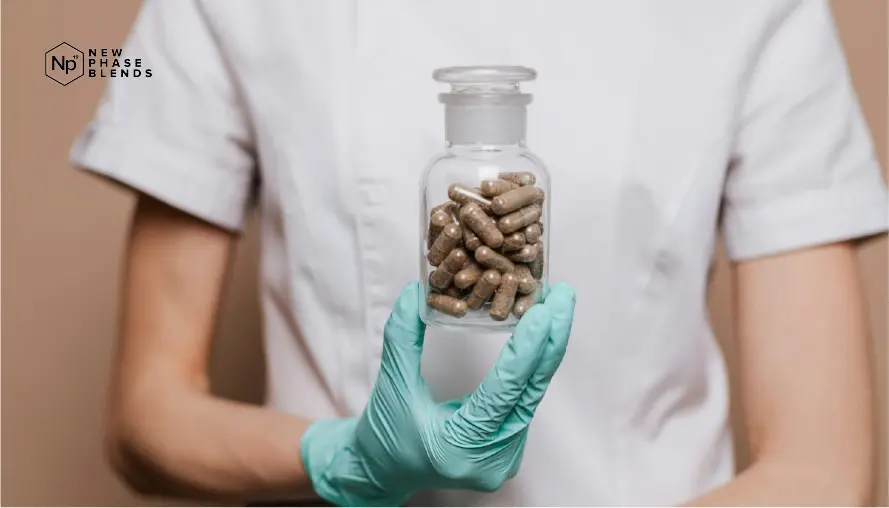
Scientists have known about polyamines and their role in cellular metabolism for a long time, but they only recently discovered that spermidine levels diminish as we age (Muñoz-Esparza et al., 2019). This discovery has opened up a new frontier in longevity science, with many animal and human studies suggesting that spermidine plays a significant role in delaying aging and age-related diseases (Kiechl et al., 2018; Madeo et al., 2018).
Top Food Sources of Spermidine to Include in Your Diet
One of the most direct ways to increase your spermidine levels is through your diet. Here are the best food sources, ranked by their spermidine content:
1. Wheat Germ
Wheat germ tops the list of spermidine-rich foods. The embryo of wheat kernels that gets eliminated when grain is processed into flour contains approximately 243 mg/kg of spermidine (or about 2.5 mg per tablespoon). Adding wheat germ to cereals, smoothies, yogurt, or baked goods is an excellent way to increase your daily spermidine intake.
2. Soybeans and Soy Products
Soybeans are another excellent source of spermidine, containing between 165 and 290 mg/kg. You can increase your soybean intake through foods like edamame, tofu, tempeh, miso, soy milk, and natto (fermented soybeans).
3. Aged Cheese
Many mature cheeses like cheddar, blue cheese, gouda, brie, and parmesan are packed with spermidine, with content approaching 20 mg/100g. During the aging process, proteins in the cheese break down, increasing the concentration of spermidine. While these cheeses are spermidine-rich, they should be consumed in moderation (about 30-40g daily) to keep salt and saturated fat intake at healthy levels.
4. Mushrooms
Mushrooms are one of the most spermidine-rich plant foods, with impressive levels around 8.8 mg/100g. Various types, including shiitake, portobello, and especially Black Shimeji mushrooms (which contain approximately 124 mg/kg of spermidine), can be incorporated into salads, soups, or stir-fries.
5. Legumes
Legumes like green peas, chickpeas, and lentils are excellent sources of spermidine, with green peas containing about 50 mg/kg (approximately 8 mg per cup). These can be easily incorporated into various dishes like soups, stews, and salads.
6. Whole Grains
Whole grains like rice bran (which contains about 189 mg/kg of spermidine), barley, quinoa, and corn are good sources of spermidine. These can be used as alternatives to refined grains in your daily meals.
7. Nuts and Seeds
Nuts and seeds, particularly hazelnuts (with a respectable 2.1 mg/100g), almonds, walnuts, and pumpkin seeds, provide good amounts of spermidine while also offering healthy fats and other nutrients.
8. Fruits
Though fruits generally have lower spermidine content compared to other food categories, some varieties like mangoes, citrus fruits (grapefruit and oranges), and durian do contain meaningful amounts. Mangoes, for instance, provide a spermidine content of around 10 mg/kg.
9. Animal Products
Beef contains about 3.7 mg of spermidine per 100g, while chicken liver offers an even better amount at 4.8 mg/100g. Animal sources like fresh meats typically contain up to 92 nmol/g of spermidine. However, it’s important to consume these in moderation as part of a balanced diet.
Spermidine Supplements
While incorporating spermidine-rich foods into your diet is the most natural approach, supplementation can be a practical solution for those unable to consistently consume adequate amounts of these foods. Spermidine supplements are typically sourced from natural spermidine-rich foods like wheat germ or soybeans.
Recent clinical trials have begun testing high-purity spermidine supplements in humans, though research is still in early stages. One study tested a novel high-purity spermidine trihydrochloride supplement at 40 mg/day in healthy men aged 50-70 years (Schwarz et al., 2018; Keohane et al., 2024).
Generally, spermidine is considered safe for most individuals, whether consumed through food or in supplement form (Schwarz et al., 2018). However, there are some important precautions to consider. Spermidine supplements could potentially interact with specific medications, including antidepressants and blood thinners (Frühauf et al., 2015; Morón et al., 2013). Therefore, always consult with your healthcare provider before starting any new supplement.




